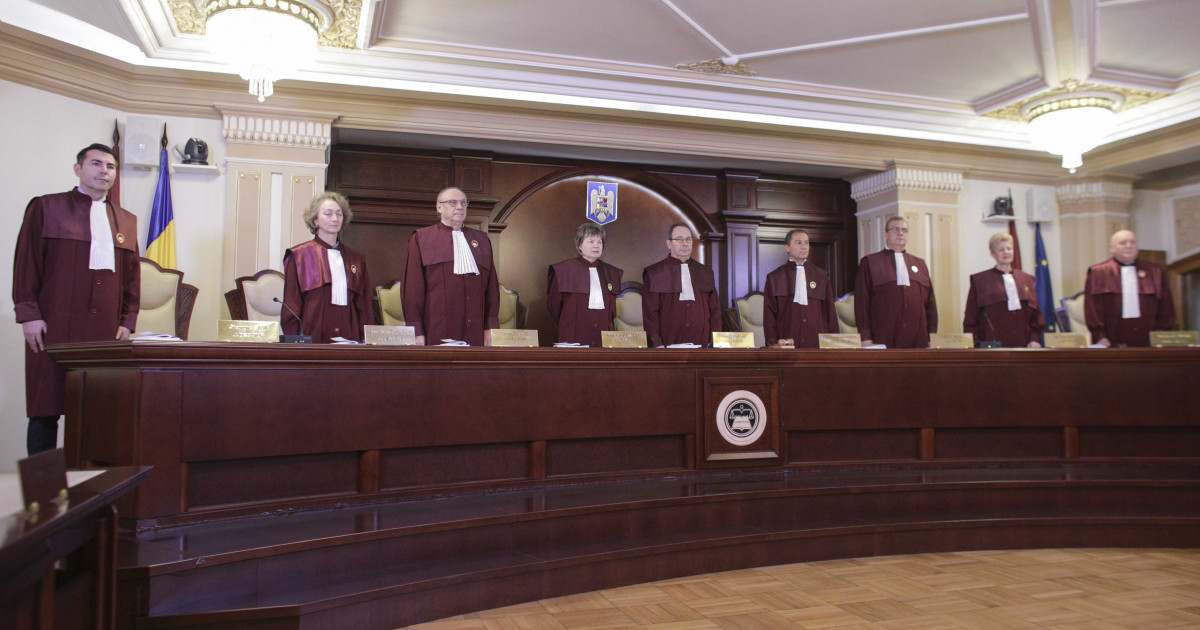
[ad_1]
The law that prohibits the reference to gender identity in schools has been declared unconstitutional by the RCC, reports Agerpres.
The Constitutional Court thus accepted a notification made by President Klaus Iohannis to the law that modifies article 7 of the National Education Law 1/2011, which prohibited the reference to gender identity in educational institutions.
According to sources from Agerpres, the decision was made by majority vote.
The law prohibited activities “in order to disseminate the theory or opinion of gender identity in the units, educational institutions, and in all spaces intended for education and professional training, even in units that provide extracurricular education,” understood as the theory or opinion that gender is a different concept, biological sex and that the two are not always the same ”, as well as activities that contravene the principles set forth in article 3 of Law 1/2011.
The Presidential Administration argued that this amendment to the National Education Law contradicts the constitutional provisions on the rule of law and the principle of separation of powers in the state, namely, article 29 on freedom of conscience of the Constitution.
Klaus Iohannis: Parliament’s solution goes against individual freedom
“We consider that the law that is deduced from the control of constitutionality imposes a stereotype / cliché on the result of investigating certain theories / opinions, which must be one and the same, to fit a pattern and not be oriented towards a certain meaning or purpose, otherwise, the sanction is the prohibition of the activity of disseminating the respective theories / opinions in the specific educational field. In this case, we see that the Parliament’s solution is to impose by law what activities, theories or opinions and for what purpose can they become educational activities that can be carried out in educational units and, therefore, what disciplines can be studied. in the school or academic environment it contradicts individual freedom of conscience because, through this way, the normative provision is likely to restrict freedom of thought and opinion, ”said Klaus Iohannis.
The head of state recalled that, according to art. 29 par. (1) and (2) of the Constitution, the individual enjoys unrestricted freedom of thought and opinion, guaranteeing freedom of conscience.
“The entire educational system must be open to ideas, opinions and values, the state must refrain from adopting legislative solutions that can be interpreted as a lack of respect for the beliefs of people, parents or legal guardians. In this sense, the provisions of art. 2 par. (3) of Law no. 1/2011, according to which the educational ideal of the Romanian school consists in the free, integral and harmonious development of human individuality, in the formation of the autonomous personality and in the assumption of a system of values necessary for the realization and personal development, for the development of entrepreneurship, for participation. active citizen in society, for social inclusion and for employment in the labor market ”, is also reflected in the notification sent to CCR.
ACCEPT Association: The CCR’s decision recognizes that transgender people exist in the legal and factual reality of Romania
The ACCEPT Association welcomed the decision taken by the Romanian Constitutional Court, which “stopped a serious attack on democracy and the freedoms of thought, expression and academic autonomy”.
“The decision of the CCR allows the debate on gender inequality and non-compliance with gender identity, chronic problems in Romanian society, in an educational framework that allows open debates and analysis of these issues. It is vital for transgender people that trans identity is part of school and college discussions in order to reduce the degree of discrimination faced by transgender and non-binary students and students. Students of law, medicine, psychology, sociology will be able to continue learning about gender, in order to offer adequate services to women and trans people in their careers. Furthermore, the CCR’s decision nullifies transphobic and misogynistic attitudes within Parliament, ”said Patrick Brăila, transgender rights activist and co-chair of ACCEPT.
“Today’s CCR decision is an important step: it recognizes that gender and, implicitly, transgender people exist in the legal and factual reality of Romania. This reality, once recognized by the ITC, must be respected in the measures legislative and executive, not only in education but also in health, public order and other public services where transgender people have the right to be treated with the same respect and professionalism as any citizen, taking into account their identity gender ”, said Iustina Ionescu, human rights lawyer and member of the ACCEPT Association.
Publisher: ML